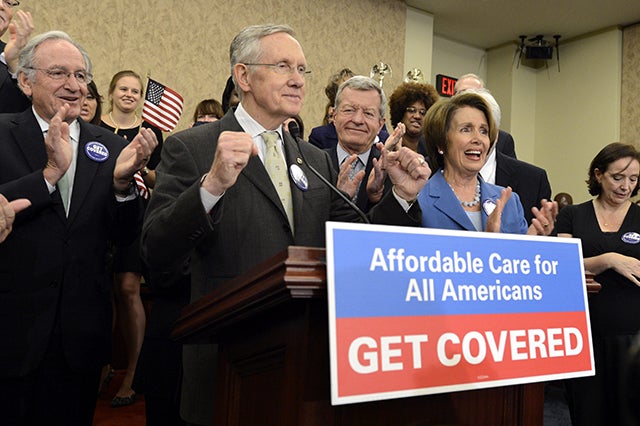President Obama conceded last week that Americans enrolling in Obamacare’s state- and federal-run insurance exchanges might lose their doctors to get low insurance premiums—and that might not be the end of their access problems.
This week, The Associated Press is reporting that Obamacare consumers are also losing access to top-notch cancer centers. The AP—which surveyed 23 cancer centers that are part of the National Comprehensive Cancer Network—found that only four of the 19 cancer centers that responded to the survey said that patients have access through all insurance plans in their states’ Obamacare exchange.
Among the examples the AP found, Seattle Cancer Care Alliance is not part of five out of the eight insurers in Washington’s state insurance exchange while Memorial Sloan-Kettering is included in only two of nine insurers in New York City, with out-of-network agreements with two other insurers. Less access to these centers means patients may not get the most advanced cancer treatments, including clinical trials of new drugs, AP notes.
The AP also highlights that understanding which cancer centers are included in Obamacare insurance plans and which ones aren’t requires “additional digging by the people applying.”
To keep premiums low in health plans on the Obamacare exchanges, many insurers created plans that had narrow networks of available health care providers, often limiting the hospitals that recognize these plans.
Obamacare opponents, such as The Heritage Foundation’s Edmund Haislmaier, projected in November 2013—as the disastrous rollout of the Obamacare exchanges was underway—that insurers would respond to the health law’s imposition of higher costs by excluding more providers from their networks for plans in the exchanges.
“Thus, the only way the insurers will be able to control plan costs is by limiting coverage to a smaller number of providers willing to accept low reimbursement in return for a high volume of patients,” wrote Haislmaier, a senior research fellow in Heritage’s Center for Health Policy Studies. “This explains why many participating insurers—including ones that do not currently operate Medicaid managed-care plans—are offering narrow network plans on the exchanges.”
Late last week, the Obama administration proposed a number of sweeping new rules that would “encourage improved consumer protections regarding essential community providers, network adequacy, access to needed prescription drugs, and coverage of care during transitions,” according to Modern Healthcare.
Among those proposed rules, the federal government would scrutinize plans on the Obamacare exchanges to see if they had enough hospitals and specialists in various medical practices, Modern Healthcare writes. Plans would have to contract with at least 30 percent of essential community providers in the market, including children’s hospitals, community health centers, and HIV/AIDS clinics.
The cancer center access issue comes as The Hill reports that Obamacare-related premiums will likely double in some parts of the country next year. Citing unnamed health insurance industry officials, The Hill writes that the expected rate hikes will be announced in the next few months ahead of the mid-term elections.
Insurers start filing their rate proposals in the spring. Those rates will be released in the summer, typically after insurance commissioners approve them, The Hill writes.
